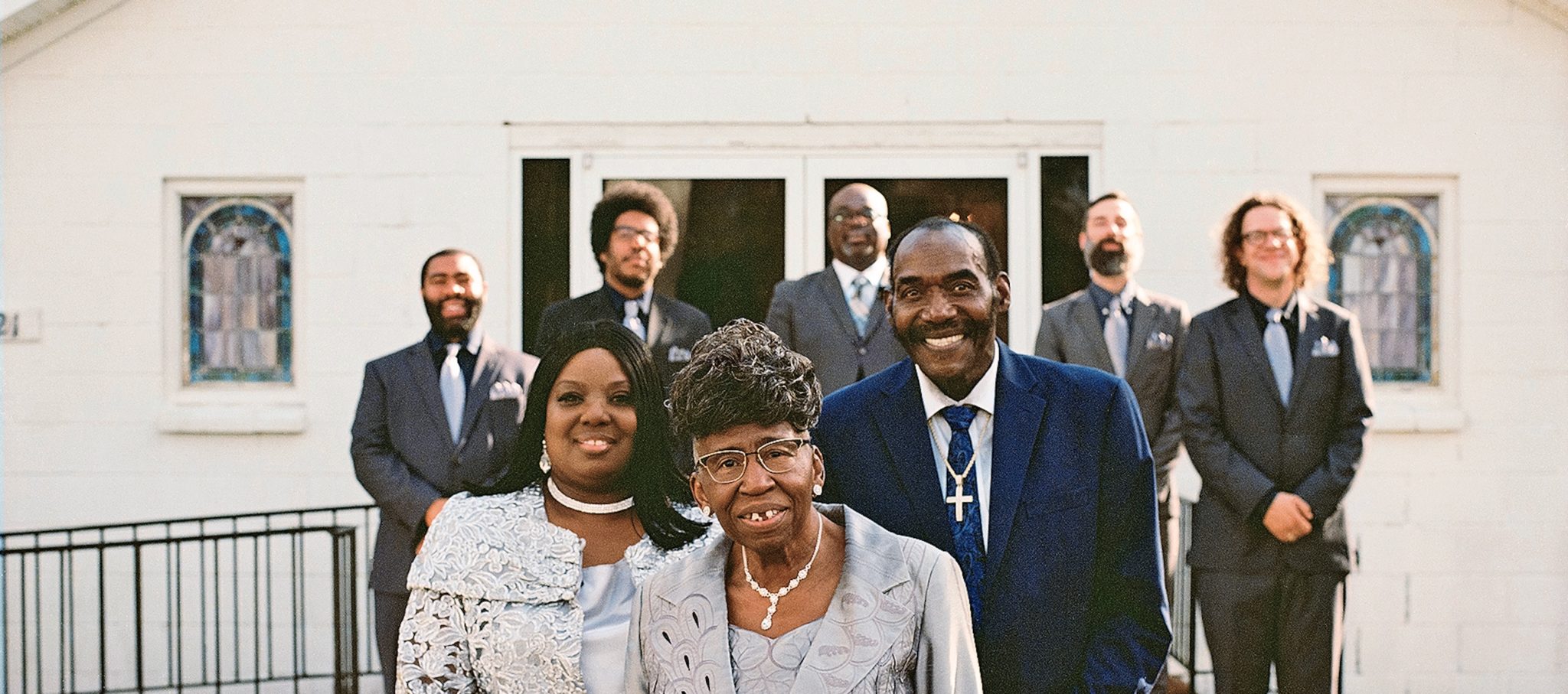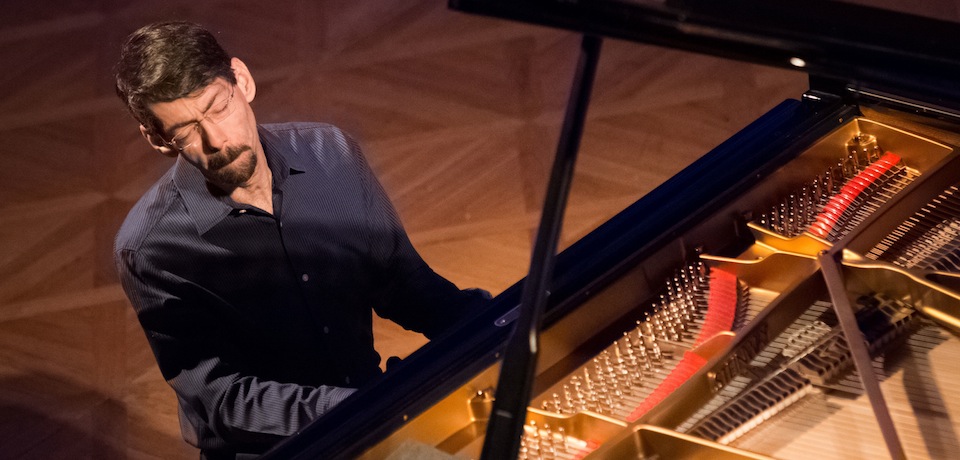Matt Durning is a documentary filmmaker based in Chapel Hill, North Carolina. He earned his undergraduate degree in film studies from Wesleyan University in 2002 and a master’s in journalism from UC Berkeley in 2010. Before he got his start in documentary filmmaking, he worked on a variety of progressive political campaigns such as moveon.org, John Kerry’s presidential campaign, anti-war, environmental protection, pro-gay marriage, and civil rights campaigns. Soon, however, he realized his passion for social justice would be better realized through filmmaking and has spent the last 10 years focusing on stories with a social justice bent.
California spoke with Durning about his latest documentary film Stay Prayed Up, which follows the Branchettes, a Black gospel group, as they embark on recording their first, live studio album. The film was recently screened at the 45th annual Telluride Film Festival.

What inspired the film Stay Prayed Up?
The project began with the close personal relationship between Phil Cook—a local musician, music producer, and co-producer of the film—and Lena Mae Perry, this incredible 83-year-old gospel singer and the leader of The Branchettes, a legendary North Carolina gospel group. Phil recently launched a music label called Spiritual Helpline that aims to support and advance contemporary gospel artists, beginning with the Branchettes. Phil reached out to my co-director, D.L. Anderson, about documenting the Branchettes journey to record the first, live concert album of their 50 year career. The genesis of the film was us spending a week together documenting the Branchettes’ rehearsals and recording of this live, gospel album in Sister Perry’s home church, Long Branch Disciples of Christ Church, in Newton Grove, North Carolina. Once we started filming, we realized Sister Perry and her life story were just incredibly inspiring and deserved much deeper storytelling than just a single concert performance. We wanted to understand and show how one person living their life with intention and strong faith can be a positive force in their community.
What was it like working with the Branchettes?
I’ve worked on a lot of film projects and I don’t usually come from a day of filmmaking feeling as good and grounded as I did from every day I worked on this film. I’m not someone who has a deep connection to faith in my personal life, but it was incredibly illuminating being able to spend lots of time with people whose lives have been driven and motivated by faith. Being exposed to a community of faith and seeing how positive of a force it can be, when it’s done in such a pure way, changed my personal relationship with faith. I can’t begin to say I understand it, but Sister Perry’s music, her world, her life is all about faith. Faith is central to everything she does and it’s the force that drives so much of what is beautiful and powerful about gospel music. So the best decision we made with the film was not to shy away from exploring Sister Perry’s faith and its role in music and shaping community. This film celebrates and explores the depth and purity of faith and the ability of one person like Sister Perry, compelled by faith, to leave a profound mark on the world.
Why was it important to document the Branchettes’ story and what makes them different from other Gospel groups?
I wouldn’t say that the Branchettes are that different from other gospel groups, but I think the point is that small gospel groups like that exist all over the American South and are the foundation of so much musical history in this country that often gets overlooked. Phil Cook said, “Gospel is really the garden where all great American music grows.” Many popular singers like Kendrick Lamar, D’angelo, and Aretha Franklin learned to sing and play in church. It’s the church that incubated, supported, and sustained much of that great African American music in this country which is now popular music. Part of the story was just acknowledging that groups like the Branchettes are doing this all over the country and gospel music is not dead— it’s a very alive and contemporary musical form that still happens in small communities all over the U.S. They’re not making music for fame or money, they make this music because they feel compelled and this music is at the root of their faith and community connections. It’s a pure and nurturing way of community building and the Branchettes are just a microcosm of what’s happening all over the country.
What was your main takeaway from working on Stay Prayed Up?
Although I’ve worked on several projects about communities of color and social justice, each one is different and there’s something new to learn every time. On Stay Prayed Up, I learned how to structure a documentary project with intention through my fellow filmmakers and the advisers we brought on. From the very beginning, we had Sister Perry’s daughter come on as co-producer— to ensure Sister Perry and her family shared creative control of the filmmaking process. We were intentional about writing a profit-sharing model that would grant the majority of the proceeds to Sister Perry and her church. It was very important to us that we upend the traditional model that often takes advantage of people’s stories for their personal gain. In essence, the main takeaway was how to properly structure projects with marginalized communities in a way that is genuine and equitable.
Learn more about Stay Prayed Up and upcoming screenings: https://spiritualhelpline.com/stay-prayed-up





















